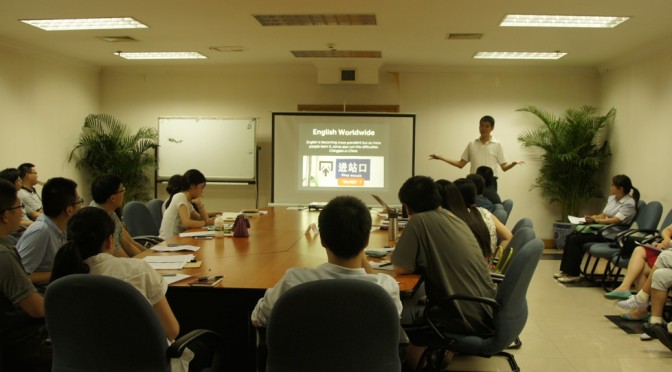The Chinese government can at times be one of more difficult “group of students” to talk to, and it’s here in China, more than anywhere else, where a solid track record and years, if not decades, of experience, will probably be much more in your favour than anywhere else. Having solid (but also legal!… as in “non-corrupt”) relations somewhere in the system will also work in your favour.
It took me over 10 years of Chinglish-gazing around the country to be shown the right people to that one classroom in the Foreign Affairs Office of Beijing’s most internationalised district, Chaoyang, where people came in the evening hours of 15 July 2014, to listen to me speak about Chinglish — and how to fix it. For around an hour, I briefed around 20 people, most of them quite visibly enthusiastic, on how these mistakes were made, where they were often made, and how they could be best corrected. To ensure learners were best versed into the English language, even the introduction by the district’s foreign office itself was in English.
This was my first go at teaching an “all-government” audience, but if you could hold a microphone in front of thousands of unknown faces, you could do the same in front of 20 mandarins without a mic. I was happy to have helped the district of Chaoyang, home to many expats and embassies, improve their English in the run-up to hosting the APEC summit later that year.
